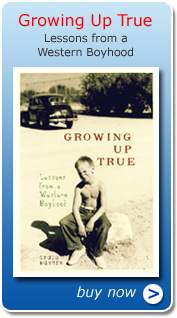There are three kinds of violence which are now feeding off each other in the Middle East. One is the suicide bombers, striking terror into Israel. The next is the retaliation, the destruction of Palestinian society and government, the bulldozing of villages, striking terror into the Palestinians. The third, and least talked about, is the forceful expropriation of Palestinian land for Israeli settlements.
These expropriations are seizures at the point of a gun. The seizures include land for new roads which are broad corridors reportedly more than three football fields wide. Palestinians have been fenced outside by barbed wire which now criss crosses their land, cutting through olive groves and farms. These seizures are illegal under the Geneva Conventions but they have been increasing for the last 10 years. There are now twice as many Israelis living on Palestinian land as when the Oslo peace process began.
Sharon, not seeing the outrage of the settlements, is outraged that Palestinians are outraged. The outrage of each reinforces the outrage of the other. Sharon's message is therefore primitive, as one might expect from a man in a brawl: Israeli suffering, he promises, will be avenged two-or-threefold by Palestinian suffering. This retribution, this brutal, brawl mentality, however, has been identified as barbaric for a great part of civilized history. The Code of Hammurabi in 1,728 BCE established the principle of proportion, that is the principle of only one eye for one eye and one tooth for one tooth. It was a reform at the time, a principle of fairness. It became one of the foundations of Middle Eastern culture. Sharon's three-for-one retribution has, therefore, not just violated the Geneva Conventions, he has regressed to conduct outlawed 3,700 years ago.
Before this year Israel might have had a substantial portion of the Palestinian population joining them in the search for peace or even the search for an alternative to Yasir Arafat. Now Sharon has managed to nearly eradicate independent Palestinian society, has made Arafat a hero, has left masses of Palestinians unemployed, many of them without houses, water or electricity, all of them walking about in the rubble of war having lived through a month of terror. Before Sharon began, in his own words, 'beating them down,' there were perhaps hundreds of potential terrorists. Today there are many thousands searching for bread, water, electricity or a place to sleep, and all these thousands must also be considered potential terrorists. Hundreds of thousands have experienced the roar of the tanks, the curfews, the whistle of bullets and have seen videos of children bleeding to death because ambulances were held back by the Israeli army. Now all these numbers must be imagined as silent supporters of terror.
Within Israel, doors are locked, civilians are afraid to walk the streets, businesses are empty, restaurants body-search customers before letting them in. Israeli commerce has been severely damaged. The result is that Israel too is less prosperous, less secure, less confident of its future. Israel is in all respects worse off than before the settlements and before the violent invasions. The measure of these policies might be moral, it might be legal or it may be simply pragmatic. In all ways– but especially pragmatically–the results are horrific.
The settlements are enmeshed in–and symbols of–an old story of hurt and blame and defense. It is time to give back the land and set a new direction toward a new story. Three thousand years is long enough for this family to quarrel over who has a just claim to what. It is time for the twenty-first century to begin. It is time for some mother to turn her back on all this historic self-justification, to say to some other mother, come on, let us get back to birthing something new, to the planting and the seasons. Let's go, with or without the soldiers and the lawyers, to a new history, Let us get on, they might say, with life.
